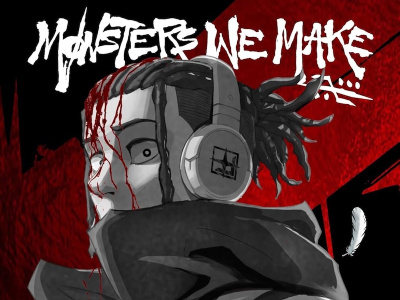 We recently interviewed Tokyopop CEO and CCO Stuart Levy (along with the occasional comment from Marketing Director Marco Pavia) to get an update on his view of the market, its trends, and Tokyopop’s major 2010 initiatives. In Part 1 of this three part interview, we talk about market conditions around the world and how Tokyopop is positioning itself in that environment. In Part 2, we talk about digital delivery and what the future holds. And in Part 3, we talk about Tokyopop’s major initiatives for 2010, including the Priest movie.
We recently interviewed Tokyopop CEO and CCO Stuart Levy (along with the occasional comment from Marketing Director Marco Pavia) to get an update on his view of the market, its trends, and Tokyopop’s major 2010 initiatives. In Part 1 of this three part interview, we talk about market conditions around the world and how Tokyopop is positioning itself in that environment. In Part 2, we talk about digital delivery and what the future holds. And in Part 3, we talk about Tokyopop’s major initiatives for 2010, including the Priest movie. Let’s start out with looking back at the year since our last interview (see “Interview with Stuart Levy, Part 1”): what’s your assessment of the overall markets for manga and graphic novels since then?
Levy: I wouldn’t go as far as saying it’s robust because I don’t think that there’s growth per se, but I do think there’s been stabilization. We see sell-through being solid for titles that are popular. We still see a real struggle with mid-list titles. Some deep back list titles do quite well whereas others struggle. It really has to do with the level of popularity of a particular series. There’s not as much depth overall in the category as there was a few years ago. That’s because of a lot of factors that everybody’s familiar with: there’s a lot more product in the marketplace, there’s less space overall in the retailers, there are fewer customers in the stores and there’s certainly a lot of accessibility to content online. So if somebody isn’t convinced and won’t actually purchase a graphic novel or a series, they have other ways they can consume it without making that plunge. All those factors combined have limited the breadth of the salable titles at retail. The last issue is that there’s still a question as to which retailers will not only survive but become stronger over the next few years, and which may or may not make it including some of the national chains.
Those comments were mostly focused on the bookstore channel. Any comments on the comic store channel?
Marco Pavia: For manga we haven’t really seen growth. Part of the challenge is that like with the national accounts, the shelf space isn’t increasing. I go into comic shops and I see a lot of old product. It’s hard to put in our new product if there are series that are four, five, six years old that are just staying there collecting dust. We are doing more product that’s been embraced by the comic shops, like our Shutter Island graphic novel, our Benjamin graphic novels,…
Levy: One thing that’s important in the difference between these channels is the store owners and the managers. It seems like they’re learning more and more what their strengths are vis-a-vis the other channels and so they’re able to focus on those strengths which means they’re looking for the product that plays to their strength. We as a publisher are, moreso than in the past, adapting our content so that it fits clearly into one of those two channels. In the next year or two you’ll see a lot more proactive efforts on our part to work with comic book retailers to develop and release content in the formats that work for that specific channel.
Are those channel-specific types of content related to the demographics of the shoppers, so more girl at bookstores, more boy at comic stores? Or is that too simple?
Levy: That’s only a big part of it, the demographics. Yeah, it does feel a little stereotypical but I do think it’s true that generally a teen girl or a tween girl, you’re going to find her more at one of your megastores, book retailers, than you will at a comic book shop but there are exceptions to that. There are fangirls that love visiting their local comic book shops. I don’t want to say one hundred per cent across the board but there’s a trend that seems like a fanboy of any age is going to support his local comic book shop, not only because he can find the product there but also because there’s a two-way relationship between the customer and the store. I don’t think that girls have developed that level of relationship with the stores in general. For them it’s more about convenience and in that case it favors the big boxes or the malls.
Are you seeing the same overall trends around the world?
Levy: It’s a good question. For us in particular we’re very familiar with the British and the German markets because we publish there. The British market has really collapsed at the book retail level and that’s the problem--it’s even more extreme than the U.S. frankly. You see a lot more book store closings, you see some of these chains go out of business. There aren’t a lot of places where you can buy books. You’ve got hit best sellers sold at the supermarket chains there for incredibly low prices to the dismay of a lot of the publishers. It happens a little bit here. We saw that late last year with Walmart and Amazon kind of competing with each other for a couple of the big best sellers for novels (see “Online Book Price War”), but not to the extreme of the U.K. Graphic novels have never really caught on with the book retailers in the first place there the way that they have in the U.S. That combined with the collapse of that book specialty retail market has led to no place for the graphic novel to go other than the comic book shop. It’s almost back to being if not a hundred per cent, eighty per cent comic book shops in the U.K.
Germany’s totally different. In Germany there are a lot of independent stores, and fewer chains. There are a lot of independent book stores that really have embraced the category and we’re seeing it expanding all the time. Our company in Germany has a bit more of an advantage than our company in the U.S. because we publish a lot of the top titles from Japan that we don’t have access to in the U.S. because of Viz. We have Death Note. We have Bleach. We have a lot of these titles that Viz publishes in the U.S. That also helps. At the retail level overall it does seem the retailers are more conservative in the long run which means they weren’t hit as hard by the economic crisis and they are, little by little embracing graphic novels. So it feels overall a little bit more healthy.
How about where that pipeline for manga starts in Japan--what’s the situation there?
Levy: We don’t publish in Japan. But from talking to the different publishers out there and understanding the situation, it does seem to have gotten quite bad compared to the past. Now bad for Japan is still much much larger than the U.S. market overall. They still have a significantly large market for manga and comics content, but it’s off. It’s materially off from its peak and it is decreasing. You see a very robust doujinshi market which is amateur, a direct market. You still see a pretty robust boys’ love market, so you see these niches really strong. The overall mainstream is still large but it’s decreased from what it was at its peak and it continues to decrease. The fragmentation--you have a lot of retail problems in Japan just like you have in a lot of markets worldwide. There are struggling booksellers, there are some going out of business and there are small publishing companies going out of business. People I know, some of them tend to be quite pessimistic and think that the market could continue to go south in Japan.
What about backing out for a little broader view than just the manga market in the U.S.--what about the overall appetite for Japanese content? What trends are you seeing there?
Levy: My personal opinion is that Japan as a pop culture influencer is still very relevant to the U.S. market. It comes in and out in terms of retail whether things are imported directly or indirectly through the creative influences on local creators. It’s ingrained in our pop culture in the U.S. now that Japanese pop culture plays a part. That’s both directly and indirectly. I do believe a lot of people are accessing the more direct Japanese pop culture content via the web and because there are less legal ways to access that content. Piracy is pretty rampant in the U.S. among Japanese pop culture product. Some of the legal Websites seem quite popular. I personally don’t believe that there’s been a drop-off in terms of interest in Japanese pop culture. I think it’s woven more and more into the fabric of our own pop culture society.
How are you positioning Tokyopop to do well in this kind of economic environment?
Levy: We’ve been pretty quiet for the past year, year and a half as the economic crisis hit. People can recall we were probably the quickest company to react from a management point of view. We had quite a lot of mid-list titles on the market. As the bottom fell out of the mid-list market it affected us significantly and so we restructured quickly because we’re not owned by a large parent company and so we don’t have the deep pockets that the guys who are owned by large media companies have. We were able to navigate the turbulent waters of the crisis by acting quickly. We have less staff; we work in an environment where we’re more streamlined; we put out less product,we really try to focus on product that we think the audience will react positively to. Not that we didn’t before, but when you have less titles that makes it a bit easier to do. We always try to choose titles that we think the market would enjoy.
For a year, year and a half we frankly took less risk too. We tried to go with titles we were confident would work, and basically stabilize our own company while the market had to go through the exact same process trying to stabilize to a certain degree too. Now, knock on wood, we’ve gone through that process. We feel confident about where we are and we’re starting to experiment with some interesting things. We tend to be creative people here. We’re not really distributor types or even frankly publisher types. We’re a creative team. We like trying new things, pushing the envelope. And when we’re not in that mode we’re a little bit like a fish out of water. We’re getting back into that mode. We’ve got some fun stuff coming up and we think we will have another impact on the overall market in the next year or two in what we do in a way that will maybe even be considered the second wave of Tokyopop.
Click here for Part 2.







